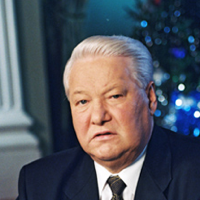When the Berlin Wall fell in 1989, I was completing my doctoral dissertation on Warsaw Pact-Third World relations. I immediately understood that my time in Soviet studies was done. Why? Because I knew that Russia was full of brilliant political scientists who, once free to pursue their craft free of ideological constraints, would do a better job explaining things there than outsiders could.
The generation of Russian scholars that emerged in the post-Soviet era proved me right, and none has consistently impressed more than Dmitri Trenin, who heads up the Moscow office of the Carnegie Endowment for International Peace. Trenin, born a mere three years after Josef Stalin's passing in 1953, has just put out a brilliant book entitled, "Post-Imperium: A Eurasian Story." In it, he adeptly explores and, better yet, measures the profound ideological distance between the Soviet Empire we once knew and the post-imperial Russia we struggle to understand today.
In the eyes of some U.S. national security experts, "Resurgent Russia" remains nearly as dangerous and imperialistic today as it did two decades ago. That misperception is due in large part to our world's growing multipolarity, which allows Moscow to economize its threat projection. All the Kremlin needs to do today is slap down tiny Georgia or shut down a gas pipeline to Europe, and without fail, the trope of the menacing Russian bear gets recycled in media coverage the West over.

